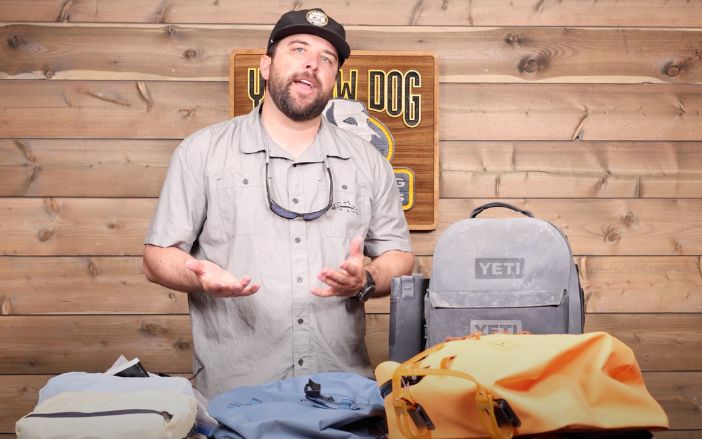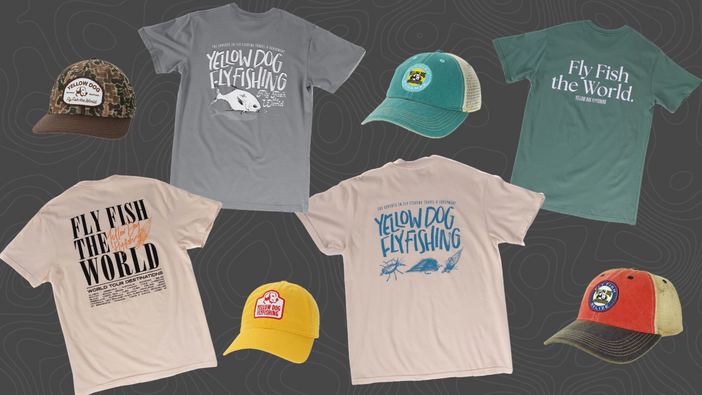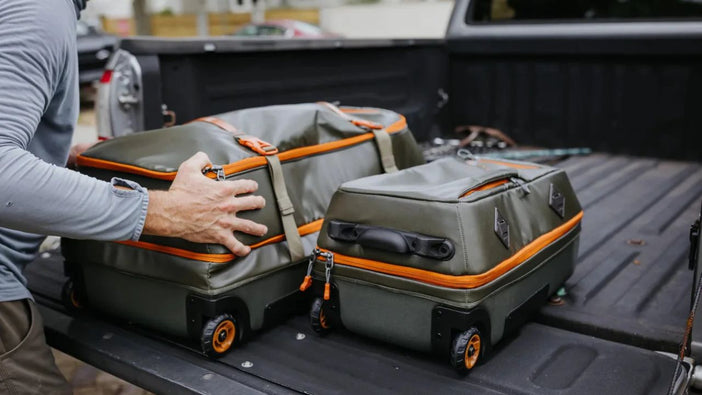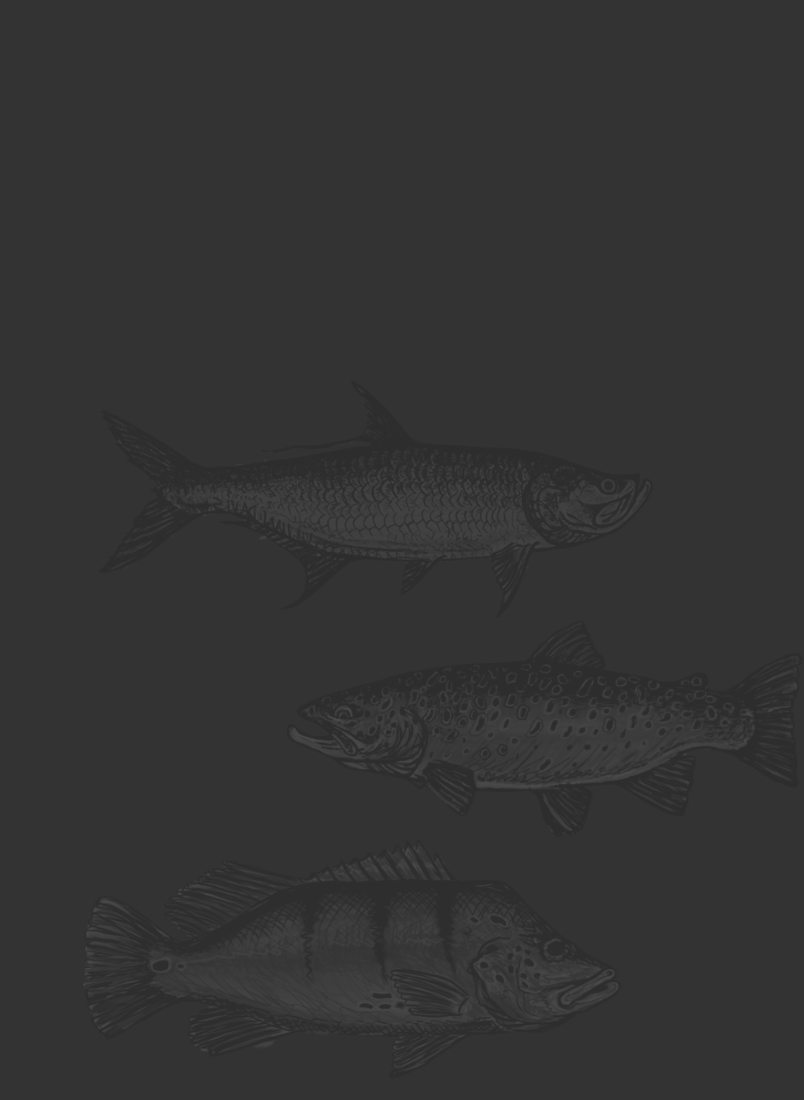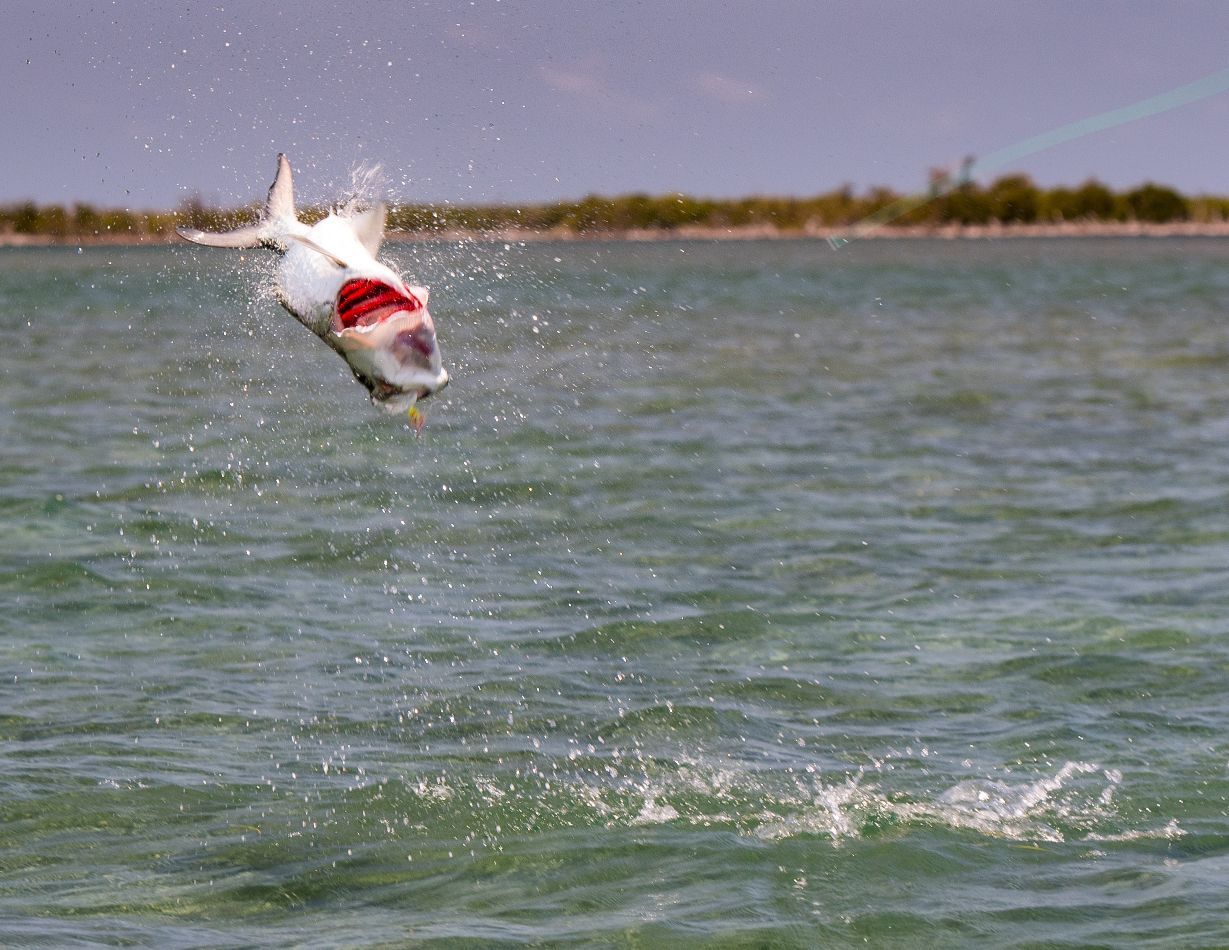If you’ve spent the majority of your fly fishing career being land-locked and targeting predominately freshwater species like trout, how do you bridge the gap and transition into becoming a saltwater tarpon angler?
Here at Yellow Dog Flyfishing Adventures, we get this question from anglers keen to try tarpon fishing themselves but have no idea how to go about it.
With this in mind, we’ve put together a list of tips to help any angler learn to maximize their first tarpon fishing experience.
Understanding the Draw of Tarpon Fly Fishing
1) Fly Fishing for Tarpon is Different From Other Saltwater Species
Tarpon are indeed a very cool species. When you hook into a big tarpon for the first time, more often than not, the first thing that you will think about is that you have no business being connected to this animal because they are hands-down one of the most acrobatic, angry, tackle-wrecking, violent creatures you could ever come tight on.

The nice thing about tarpon is that, typically, they do like to eat the fly. More difficult species like permit, on the other hand, often take a little more patience to get them to eventually eat.
Oftentimes, getting a tarpon to eat the fly can be the easy part. Landing one is where things get difficult, which is why many people will judge their day by the number of eats and jumps they collect rather than the number of fish actually landed.
It is safe to assume that for beginning tarpon anglers, for every ten tarpon that are hooked, you might land one or two. Having a tarpon jump out of the water and become unhooked is a pretty common occurrence, which is why it’s important not to get yourself down when this happens.
These fish have hard mouths and it’s often difficult to remember to really set the hook when you’re still reeling in shock from the fact that its big mouth ate your fly in the first place. `
2) You Want to Set Yourself Up for Success.
First and foremost, we encourage our anglers to focus on selecting fishing operations that are going to deliver success and fun right off of the bat. Saltwater fishing is a very different game compared to freshwater fishing.

You do not want to sign up to go fish a classic one-dimensional permit fishery destination because with the difficulty, you are probably not going to do very well the first time around if it is your first saltwater fishing experience.
Picking the wrong destination may result in you not liking saltwater fishing, as you are likely to get frustrated or discouraged.
Chances are that saltwater tarpon fishing is going to be foreign to you as a freshwater angler.
If you grew up as a trout fisherman, you may accidentally trout-set your hook with your saltwater rod and subsequently pull it out of the tarpon's mouth the first few times. Don’t worry – old habits die hard.
This is not an easy transition for beginner saltwater anglers to make.
Going out to fish these species without cultivating knowledge of the sport’s subtle unique approaches can be compared to the unrealistic mindset of a 16-year-old kid who just got his driver's license immediately thinking that he can compete in a NASCAR race.
So when starting out as a beginner saltwater angler, it’s important to set realistic expectations.
You want to plan your first saltwater trip destination to match up with the right outfitting operation, utilizing a pro guide team that can cater to your skill level while delivering great instruction that will ultimately help you hook up with more fish.
Where to Go Tarpon Fishing, Planning and Practicing
3) Choosing the right hunting grounds.
When deciding where to attempt your first shots at a saltwater tarpon, you will have no shortage of destinations to choose from. Finding the right destination and guide for you is something we specialize in.
Every tarpon fishery we represent throughout the world has its own unique characteristics that need to be taken into consideration when gauging your skill level.
For first-timers looking for their first trip to chase saltwater species, going to a place like the Bahamas, northern Belize, or Ascension Bay in Mexico allows an angler to start with an easier target like bonefish, where you will have the numbers, the opportunities, and availability from the first moment you arrive at your destination.
That success starts with having shots and opportunities. Eats and hook-ups come next and after that a better likelihood of landing those fish as you are starting to refine your new saltwater fishing techniques.

You want to seek out a place where you can combine opportunities with good timing for strong numbers of fish, legitimate education, and instruction. Picking a place like the Florida Keys or even some places in southern Belize, where the fishing can be challenging oftentimes makes for really tough angling that can ultimately deter a beginner.
As expected, there are tradeoffs when it comes to where you decide to spend your vacation. There are tarpon destinations where the guides are phenomenal and consistently put you on fish, but don’t communicate well or teach you much. These are fisheries where your skills and your past experiences determine your successes; places better suited for more experienced saltwater anglers.
These types of destinations may not have the types of guides that can help show you how to work on your cast, how to properly set the hook, explain what the fish are doing, or show you how to lead the fish.
On the other side of the coin, there are places where the fish are known to be more inclined to grab and eat a fly; where the guides will take the time to help you learn. Such destinations are where you may want to focus for a first-time tarpon destination.
If you think that you are going to hook and land the first one hundred pound tarpon you see, you may be in for a rough surprise. Whereas if you go to a place with a lot of ten to twenty-pound juvenile tarpon, they jump and eat and thrash with the same acrobatics as any of their older giant relatives but they exist in greater numbers.
You are going to utilize the same techniques as you would with a larger fish, but you will have a chance to learn and improve your game through more frequent opportunities.
Here is a list of good beginner destinations that would be the perfect match up for the aspiring or first-time saltwater tarpon angler:
4) Do Your Homework
Nothing is more important when starting out as a beginning tarpon angler than taking the time to do your homework and be realistic about what your goals are for success.
Sure, we’ve all heard the stories of first-time saltwater anglers getting themselves a grand slam on their first trip out, but more than likely, this isn’t going to happen for most people.

Here at Yellow Dog, we provide an incredibly detailed amount of pre-trip information that is specific and relevant for each individual destination we represent, and this is an invaluable resource for beginner and advanced anglers alike.
For instance, if you book a trip through Yellow Dog Flyfishing Adventures to the Bahamas, you are going to get a pre-trip planning book that talks about how to prepare for the trip, how to pack, information about the species you’ll be targeting, the characteristics of the nearby flats and the techniques that you will want to focus on when fishing these areas.
By taking the time to read these materials, anglers will have a better concept of what is realistic and possible.
We get that some folks like to plan their own trip as well. If you're one of those people, then check out this post on questions you should ask before you book your guided trip. If you're taking your skiff and doing it yourself, then that's an entirely different game. That translates into many late nights digging into forums, reading magazine articles, analyzing Google Earth, and looking over maps and tide charts. For a beginner tarpon angler, take our advice and hire a professional guide for your first time out - this isn't taking your cup of worms to the local pond - although you may have some baby tarpon in yours!
5) Practice is important.
Part of doing your homework means having the right gear as well as knowing how to use it.
If you have purchased a brand new 11-weight rod for your first tarpon trip, don’t wait until you are on day one at the lodge to string it up and start getting the feel for it!
You should have that rod out weeks in advance before your departure date, practicing at least 15 minutes a day to fine-tune your casting. By putting in the time before your trip, you will have built up your skills to the point that casting your new, larger-than-normal rod feels almost natural.
It is always surprising to us that many people will spend their money and dedicate their time to chase their first tarpon, yet rig their 11-wt rod for the first time when they are standing on the bow of the boat on day one.
The result of this approach is that you’ll spend the first half of your trip getting the feel for things, working out the kinks, missing fish and blowing shots. Preparation on your part before your trip begins will make all the difference.
Listen to this WAYPOINTS Podcast about how to "Up Your Game and Improve Your On-Water Skills for Destination Angling."
Two Important Takeaways: Get the Right Gear and Handle With Care
6) Handling a tarpon
When handling a tarpon after you have landed it, it’s important to keep the fish in the water. Oftentimes your best option will actually be to get into the water with the fish! Most people don’t realize when they see older photos of monster tarpon being pulled by the mouth out of the water and into the boat that this can do great damage to fish’s internal organs.
The weight of these massive fish being handled and lifted like that will likely kill them. You don’t want to hang them from their head or drag them into a skiff if it can be avoided. Like all good fishing practices, thinking about what’s best for the fish is the best approach.
7) Buying the best gear you can is worth every cent
You don’t want to skimp on the quality of your gear when buying your first tarpon set up. Having the right gear is always worth it. Beginning tarpon anglers need to remember that this is an animal that is going to find out very quickly what your gear is made of (or what you spent on it).
All anglers going after tarpon need the best possible gear, including a high-quality disc drag reel, the right fly line, and the right backing. If something in your setup is lacking, it will result in possibly losing the fish of a lifetime.

If you’ve spent your valuable time and money to get to a destination and suddenly the first tarpon you hook burns up your reel, you’ll quickly find yourself out of the game. Having the right reel, rod, backing, and fly line is an investment you won’t regret. Remember, if there’s a weak link anywhere in your tarpon setup, that fish will find it, expose it and ruin your day.
Final takeaway
Taking the time to study up on tarpon and tarpon techniques will prepare you for a truly unforgettable experience and possibly the fish of a lifetime. Tarpon provide a fly fishing experience unlike any other. There is always more than an angler can learn to maximize their first tarpon fly fishing trip, and we have a great team of experienced anglers here at Yellow Dog ready and willing to help. Give us a call and let’s get started!
It takes time to realign your instincts of trout fishing into a saltwater fishing approach, where having your rod tip low and in the water lets you focus on strictly strip-setting the hook. Click here to look at all of our tarpon fly fishing trip options!










